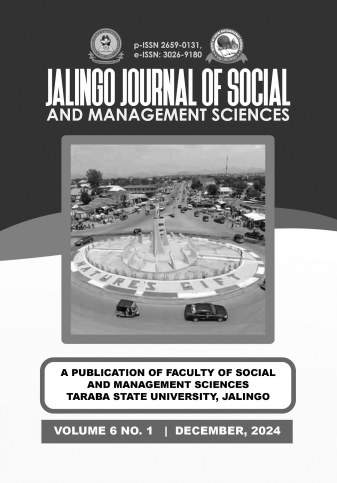Evaluating the Effectiveness of UNICEF’s Anti-Open Defecation Communication Campaign Strategies in Makurdi Metropolis, Benue State, Nigeria
Keywords:
Communication, Strategies, Open Defecation, UNICEF, EvaluationAbstract
Open defecation is a practice that is common in developing and under-developed nations. World Health Organization observed that 2.4 billion people globally do not have access to basic sanitation facilities such as toilets or latrines. About 946 million of them still defecate openly in street gutters, bushes, streams and rivers. Therefore, this study sets out to assess the effectiveness of UNICEF’s
anti-open defecation communication campaign strategies in Makurdi metropolis, Benue State, Nigeria. The study is also concerned about finding out the communication strategies used by UNICEF in addressing open defecation in Makurdi Metropolis. Diffusion of innovation theory was adopted. Survey design was adopted by the study with data being collected from a sample size of 384 through the instrument of questionnaire. Findings revealed among others that the communication strategies have not been extensive and effective. The study concluded that although UNICEF has a number of communication techniques to address open defecation practice
in Makurdi Metropolis, the communication strategies are not yielding the desired impact. The study recommended among others that UNICEF should intensify its communication strategies against open defecation practice in Makurdi metropolis by extensively using the online media, community and religious leaders, heads of women and men’s associations, market places and other stakeholders.

Downloads
Published
Issue
Section
License
Copyright (c) 2024 JALINGO JOURNAL OF SOCIAL AND MANAGEMENT SCIENCES

This work is licensed under a Creative Commons Attribution-NonCommercial 4.0 International License.
